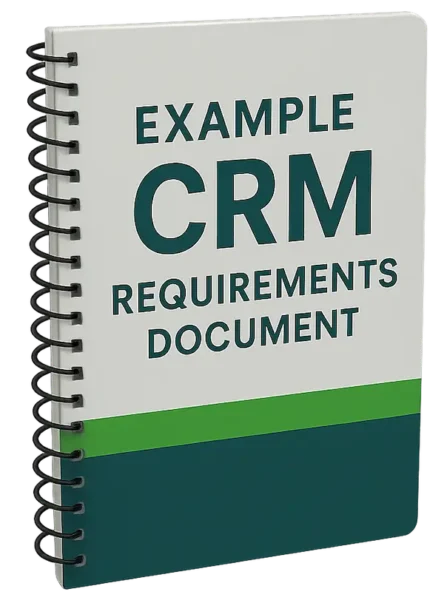When a business purchases a new CRM solution or upgrades an existing one, that decision almost always comes from executive management. It may come from employee feedback and requests, but ultimately it’s up to the company’s leadership team to take action.
Where things sometimes get snagged is what happens after that initial decision has been made. The end goal of implementing a CRM solution is to have company employees use it, and ensuring high CRM user adoption has a lot to do with good executive leadership.
Engaged Leaders Equals Engaged Employees
A SlideShare presentation published by Cornerstone OnDemand — a cloud-based talent management software company — highlights how good leadership can have a profound effect on employee engagement through all aspects of the business:
While aimed at addressing day-to-day operational job engagement, their presentation is highly applicable to management’s role in increasing user adoption of a new CRM system.
Leadership’s Role
We can illustrate how good leadership can affect user adoption by borrowing the example from slides two and three, and then suppose that two companies implement the same enterprise CRM solution separately.
Committed Leadership
For Company A, let’s assume management is highly engaged throughout the CRM selection, implementation, and training process:
- During the selection phase, feedback about needs and use cases is solicited from a cross-section of employees, and a strong effort is made to get buy-in throughout the organization.
- After implementation, managers are using the system themselves for administrative functions and “big picture” analysis while at the same time, encouraging (and enforcing, if necessary) system use for the teams they oversee.
- Managers in Company A are also participating in ongoing CRM training and are comfortable answering common questions about features and use from their employees.
- A dedicated system administrator is assigned to manage system security and maintenance and keep up with functional updates to the system.
For Company A, it’s not hard to imagine that user adoption throughout the business will be high and will likely stay that way. While this may sound like an unattainable, somewhat utopian scenario for many businesses, it’s common practice in many others.
Fractured Leadership
For Company B, we’ll assume management is divided over which CRM solution to implement, and the selection and implementation process happens with minimal-to-zero input from outside the executive team:
- During the selection phase, the sales team’s needs are prioritized over those of all other departments, which creates resentment and leaves managers of non-sales staff feeling marginalized.
- After implementation, the CRM system is used primarily by sales staff. Marketing, IT, and customer service staff find using the system unintuitive and difficult.
- Managers do not use the system regularly but insist that their teams use it exclusively.
- After the initial round of training, no ongoing training program is implemented, and no one takes clear ownership of the system or is responsible for its maintenance or administration.
For Company B, user adoption among sales staff may be high, but will probably be low throughout the rest of the organization, limiting its effectiveness and possibly even fostering continued resentment among other departments.
Setting The Right Example
Unfortunately, for many businesses that go through the CRM selection and implementation process without prior experience or third-party assistance, the Company B scenario is where they end up.
No company wants to go through the process of selecting and implementing an expensive enterprise CRM solution only to have no one use it. Avoiding that mistake is why it’s critical that a company’s leaders be engaged in and committed to the “process and the promise” from the outset of the decision to buy a CRM system.
A company with high CRM uptake among employees and management is not a mythical idea that exists only in the imaginations of CEOs. It’s a reality that can be achieved through careful planning, execution, and dedication from the entire organization.




